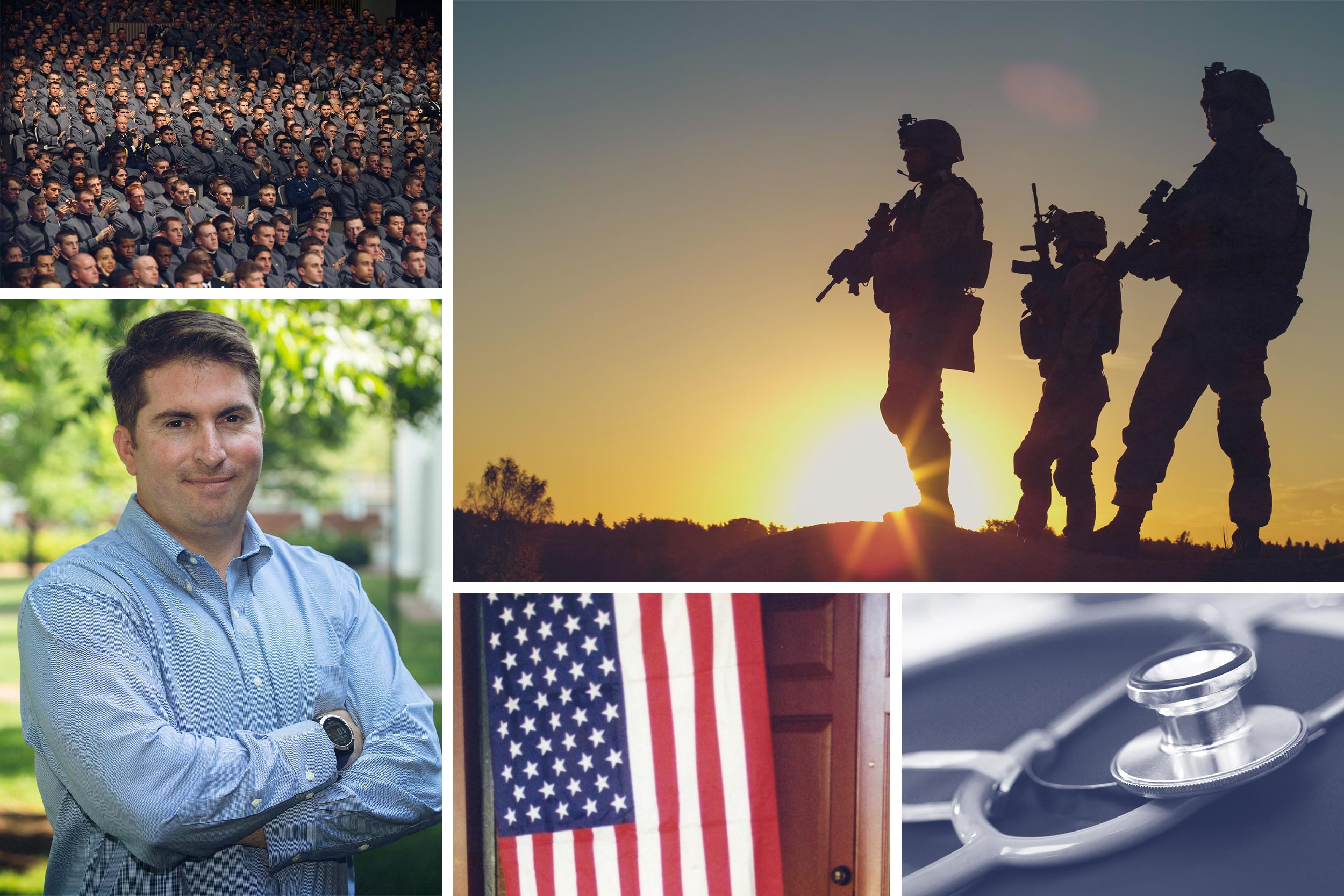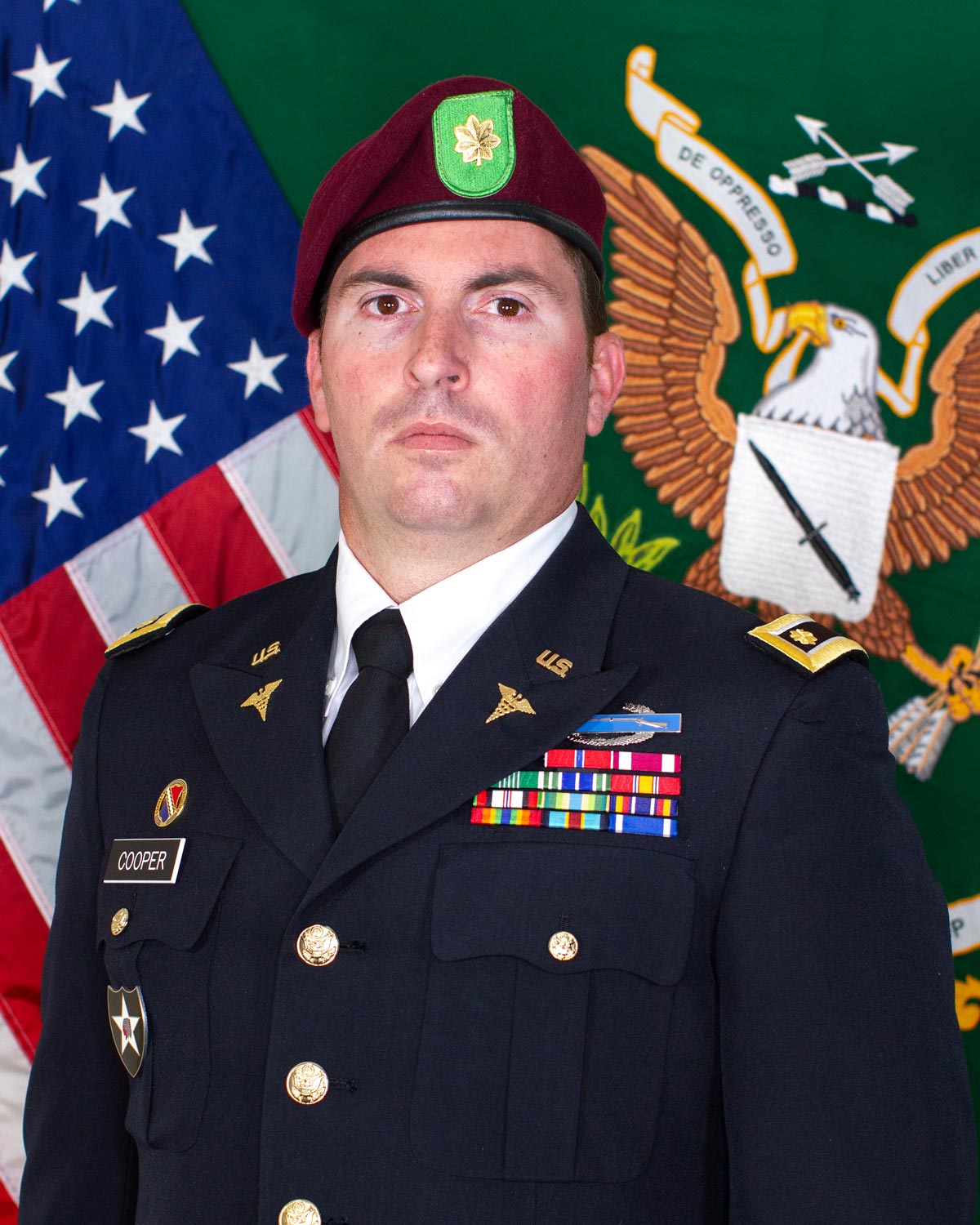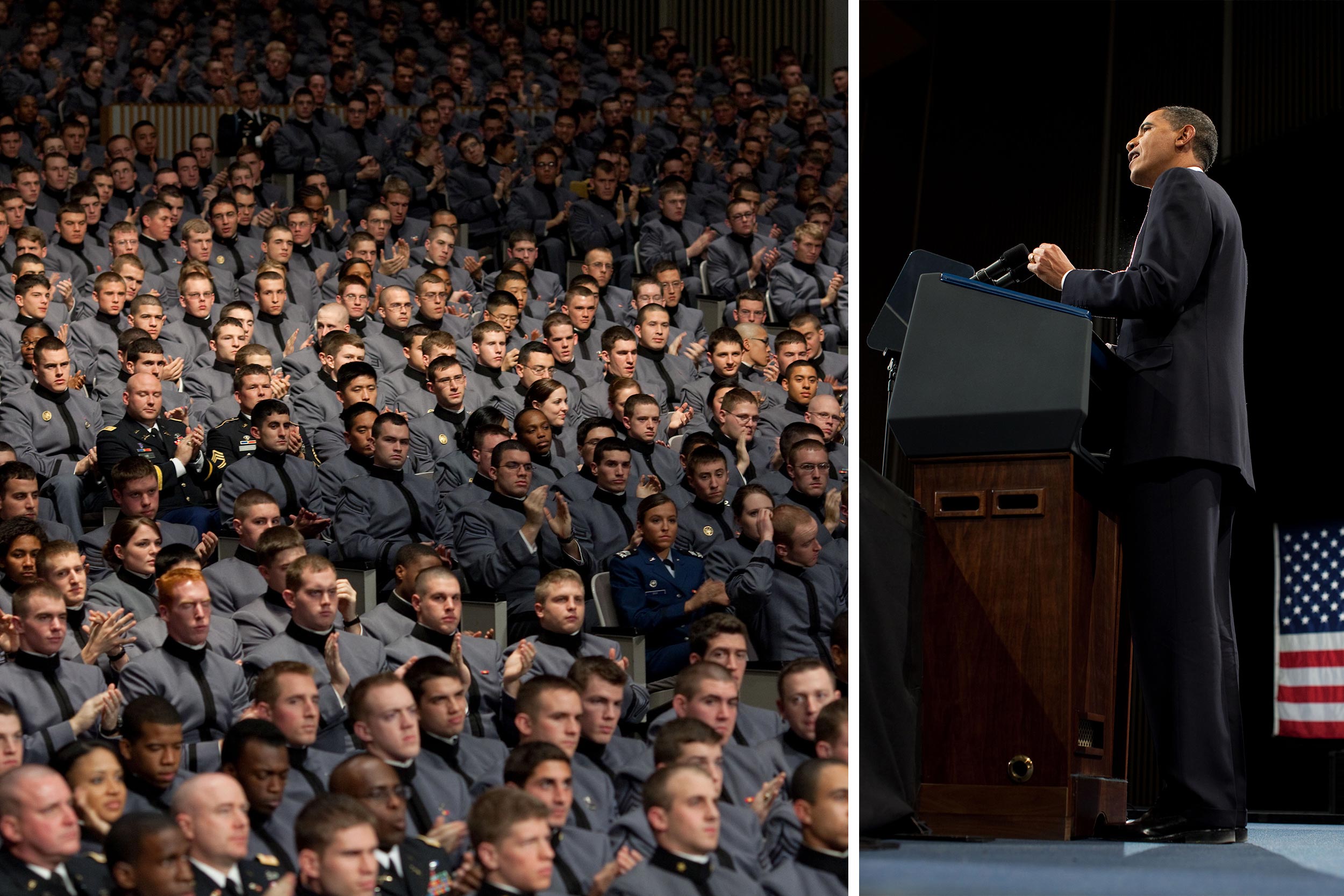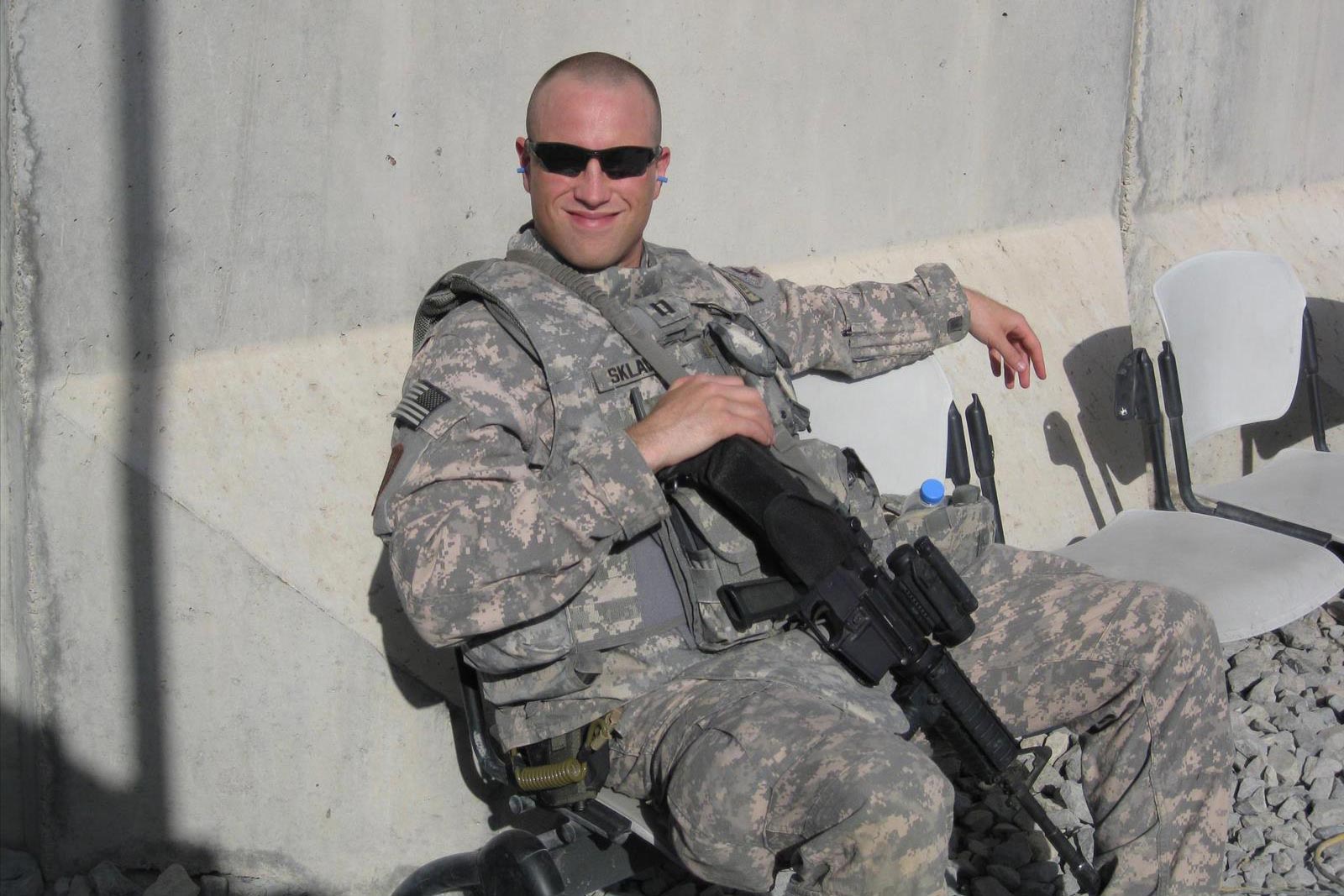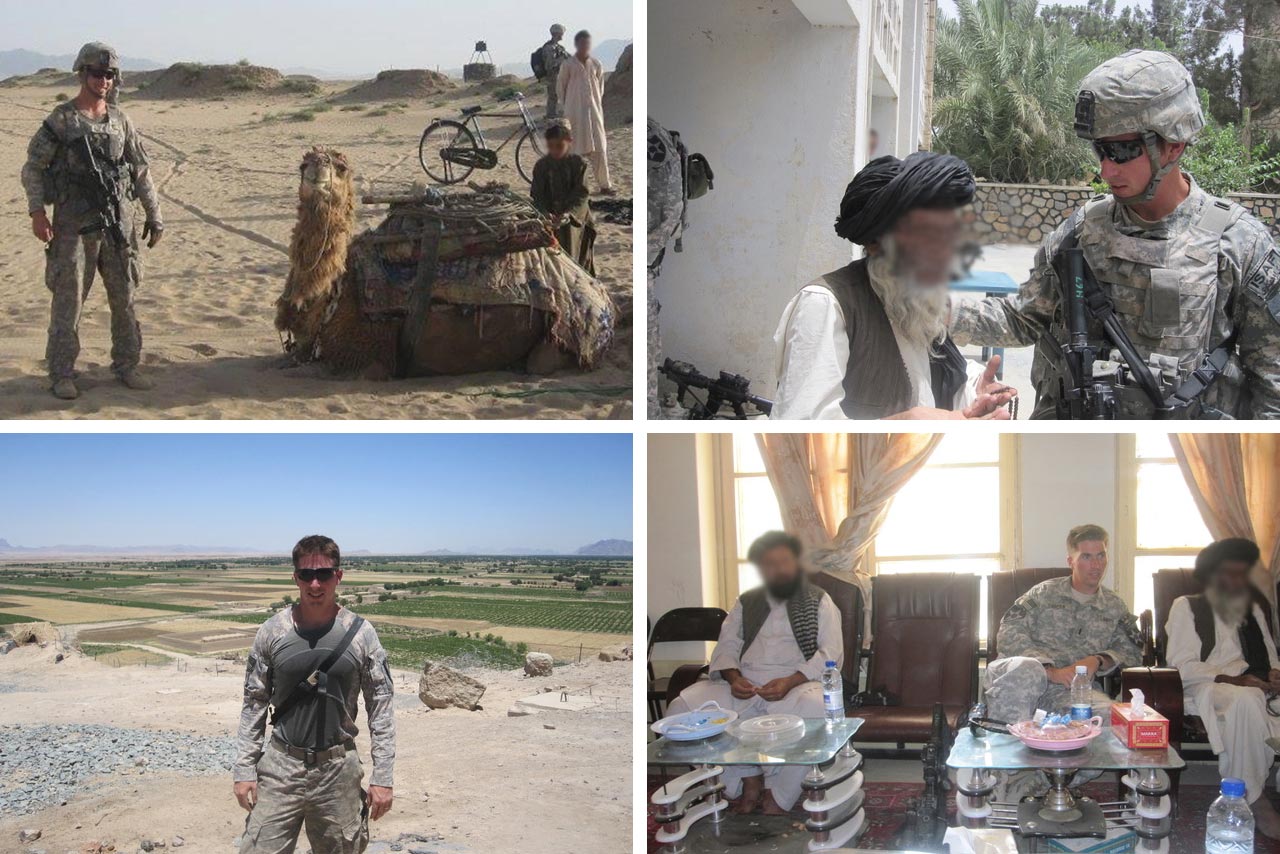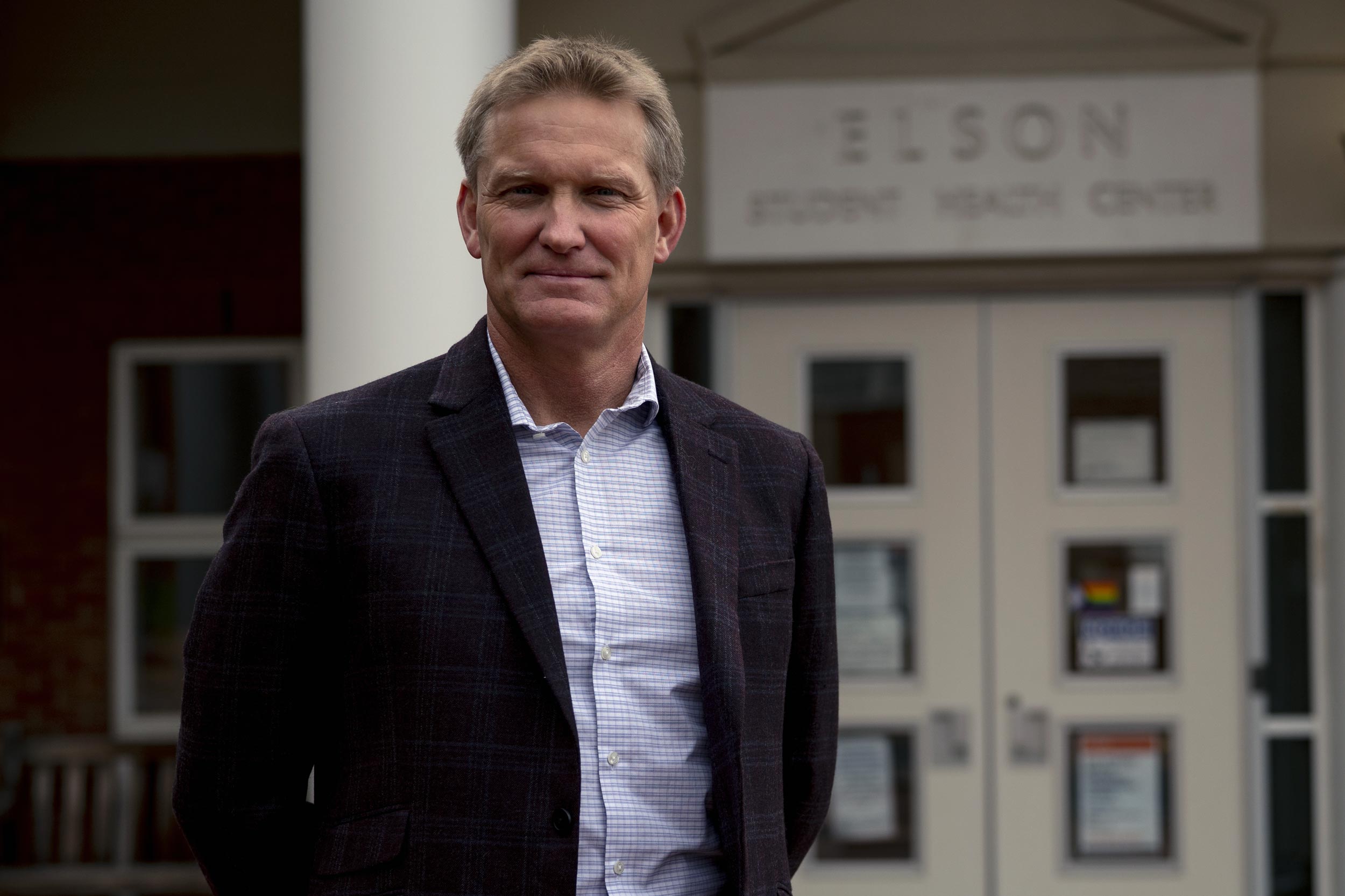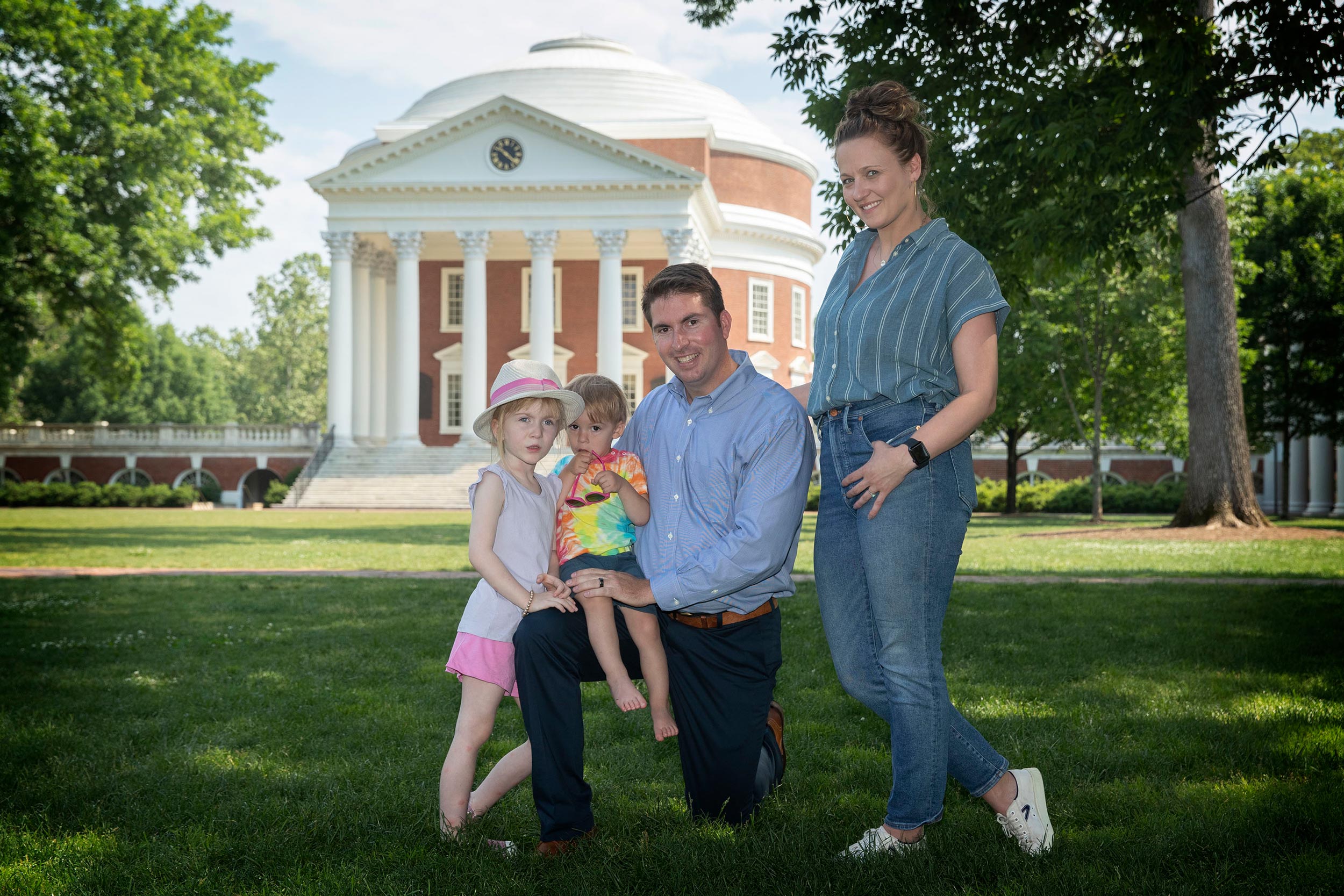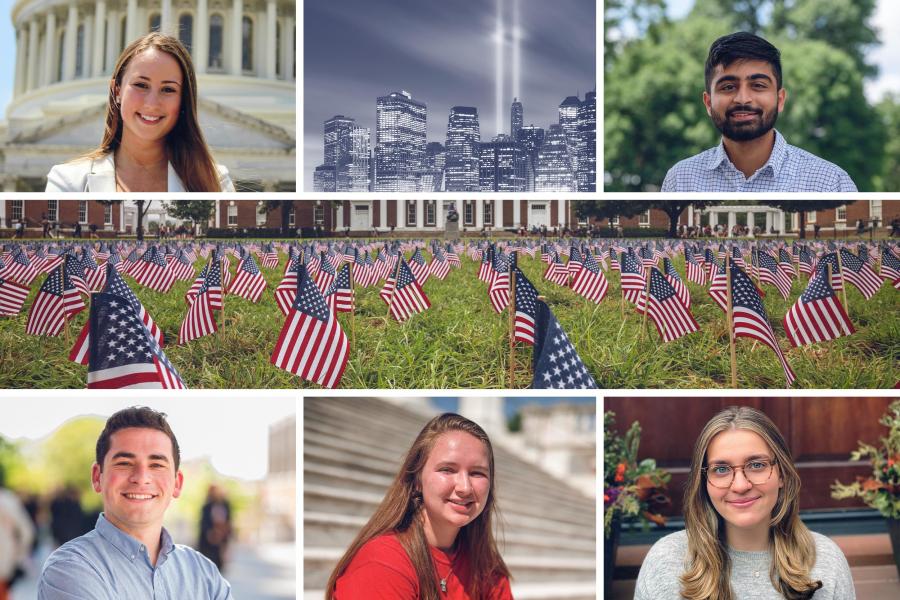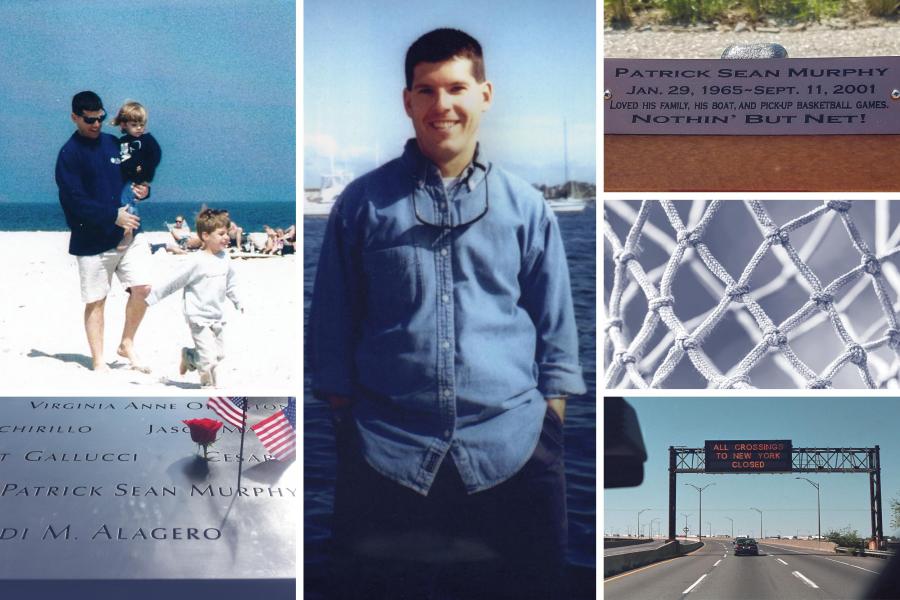In war settings, the GR&D, as it was known, goes hand-in-hand with military efforts to “win the hearts and minds” of the local populace. And for a time, Cooper felt the team was making strides, meeting regularly with tribal leaders and making decisions together through council meetings known as “shuras.” His work on the effort earned Cooper a Bronze Star.
“We were successful. In fact, we were so successful that I ended up briefing 35 senators and congresspersons because of our success, because we were effective without spending much money, significantly less than everyone around us,” he said. “Rather than telling the Afghans what to do and asking how much money they needed, we spent an enormous amount of time listening to the needs of the people and aligning our efforts to help them rebuild their traditional tribal structures. Our focus was on sustainability, which is difficult and time-consuming, but also much less expensive and more effective than throwing money at projects we thought they wanted. We sat down and listened to the folks on the ground and said, ‘What’s actually going on in your area?’ Not, ‘What do you want from us?’ In the end all we really did was listen and work hard to respond to their needs.”
David Abrahams, a retired Army colonel now living in San Antonio, got to know Cooper well in Afghanistan, when Abrahams was a battalion executive officer and Cooper served as a lieutenant on his staff.
“I never met a guy my entire time in the Army who was as uninhibited about speaking truth to power. And I think that’s what is making him successful in his role now as well,” said Abrahams, who spent 32 years in uniform.
He agreed that Cooper’s governance work paid dividends in relationships on the ground and security in the district.
Cooper credits much of that momentum to Army Capt. Benjamin Sklaver, for whom Cooper would later name his son. Sklaver headed up an Army civil affairs unit that used military resources to provide humanitarian aid, such as digging wells. He also founded a nonprofit, ClearWater Initiative, which worked to provide clean water to communities in Africa and elsewhere. The two worked closely together and, Abrahams observed, Cooper was intent on absorbing whatever he could from Sklaver.
The early success in Maiwand wouldn’t last, however, and the demoralizing losses that followed would plant the seeds for Cooper’s eventual turn to medicine, a specialization he would find more meaningful and durable.
The first of those losses was the death of Sklaver.
The second was entirely self-inflicted for the Americans.
Suffering Emotional Traumas
Sklaver and another soldier died in a suicide bomber attack in October 2009.
“When Ben was killed, that was like losing a close family member,” Abrahams said. “You can’t really exaggerate the level of bonding that happens in that environment where your life could be taken at any minute. So it’s a completely different kind of family that you create.”
Heartbroken by Sklaver’s death and the loss of other close friends in an area known as the “birthplace of the Taliban,” Cooper channeled his grief into action.
“Good Lord, if this guy is dead for this, the least I can do is take every idea he had and try my darndest to make it happen,” he recalled.
By this point, Cooper was one of two primary points of contact with the local Afghans. He regularly met with community leaders, who began to complain about U.S. soldiers killing animals and threatening civilians. The situation grew worse. Five soldiers would eventually be charged with murder in a series of unprovoked killings of civilians that were made more heinous by the casual attitude of the servicemen who became known in media reports as “The Kill Team.”
“When those guys committed the war crimes, it felt like everything I worked for was thrown away because our whole message to the Afghans had been that we’re not here to take you over. We don’t want to kill another person here,” he said. “We genuinely just want to help you rebuild this and keep al-Qaeda out of here. And that’s it. And when you have a bunch of guys who are just murdering people, you lose all the goodwill.”
When his deployment ended and Cooper returned home in 2010 to his wife, Jessica (who earned a post-master’s degree as a reading and literacy specialist from UVA’s School of Education and Human Development in 2016), Cooper was emotionally erratic, careening from happiness to anger to sorrow.
“In hindsight, I probably had some post-traumatic stress, probably some depression over that and a whole lot of survivor’s guilt,” he said. “The Kill Team’s actions really messed with me. For a long time, I felt like their actions meant that our hard work and the deaths of my friends were all in vain.”
Cooper knew he needed help, and he knew other soldiers needed help, too. His deployment, he said, suffered from high casualty rates, a higher-than-normal rate of suicides post-deployment, and too many instances of soldiers harming themselves and others after returning to the States – but refusing to get help.
After spending time with two behavioral health specialists without much progress, Cooper connected with the approach from a third doctor – and a new passion was ignited.
The Power of Medicine
In medicine, he saw a way to make a difference that couldn’t be erased by a suicide bomber, couldn’t be swept away by rogue actors, and where he wouldn’t have to start from scratch because of a change in strategy or politics.
“You can take away all those gains we made in a year of war in a heartbeat. But no one can take away the fact that my life might be very different and very destructive right now if that doctor hadn’t helped me, that psychologist hadn’t helped me,” he said. “And it just opened my eyes to – wow – here’s a field where I can be passionate. And that’s what drew me to medicine: my own struggle with mental health.”
Before coming to the UVA School of Medicine, Cooper and his wife lived in Columbia, South Carolina, where he served as company commander at Fort Jackson, while also attending the University of South Carolina full-time for post-baccalaureate, pre-med studies. He discovered that schools like UVA, Duke and Harvard were interested in students with interesting, non-traditional backgrounds. But there was something about UVA, even more than the existing emotional connections and interests through his alumna wife, or from growing up on the other side of the mountain from Charlottesville.
“I’m a romantic,” Cooper said, with a smile breaking out on his face. “Thomas Jefferson’s University – oh, man, are you kidding me? How could I not go there? There’s nothing more beautiful and frankly, opposite of war than the idea of the Academical Village. And once they gave me an acceptance offer, I immediately pulled the rest of my applications.”
At UVA, Cooper would make a lasting impression on classmates and professors alike.
Earning a Medical Degree
Dr. Chris Holstege, a professor of emergency medicine and pediatrics and chief of the Division of Medical Toxicology, met Cooper during his time at UVA, helped him explore career and residency options, and has continued to stay in touch. Holstege said Cooper has “seen unique aspects of the world that most never encounter.”
“His work in Afghanistan and in the military gave him a maturity above other medical students when he was at the University. He has experienced adversity as a soldier and seen significant conflict. All these help to form his world view,” Holstege said. “Despite the trauma that he has seen in military conflicts and the poverty in overseas countries, he has retained a strong sense of compassion for others and a desire to make the world a better place. He is also not naïve and is well aware of the dangers in the world and the challenges that we face as a country.”
Abrahams remembers the day Cooper called to tell him he was thinking about returning to school for a medical degree. He wasn’t expecting that from his old friend, but he also wasn’t surprised to hear that Cooper was aiming high for his next move.
Abrahams said he admires Cooper’s ability to find an outlet that focuses on others in the aftermath of his difficult experiences in Afghanistan.
“I think his coping mechanism and his outlet is to do good,” Abrahams said. “Spend every waking moment trying to help others.”
Returning to the military wasn’t necessarily on his mind during medical school, but the UVA experience nudged Cooper in that direction. He credited the inspiration of Dr. Rob Marsh, with whom he completed his family medicine rotation, and his exposure to Holstege and Dr. Greg Saathoff, a psychiatrist and professor in the Departments of Public Health Sciences and Emergency Medicine.
Cooper said Marsh continues to inspire him today, particularly for how he said Marsh models a life of selfless service, first through his career in Army Special Operations medicine and then through his commitment to rural family medicine.
“They made me realize that maybe someday I’ll be purely a clinician,” he said. “But I do have a lot of life experiences that a lot of other physicians don’t have. And I want to give back to the greater community in the way they have.”
Cooper graduated with honors from the School of Medicine. He was selected by peers and faculty for the Gold Humanism Honor Society, which recognizes those who exemplify humanistic patient care and are leaders in medicine. He also was the recipient of the Dr. David Moyer Service Award of the Student National Medical Association.
Finding His Medical Niche
Cooper knew he wanted to serve others, and particularly to help soldiers navigate the side effects of their profession, in part by building trust through shared experiences.
“I’m not smarter than other doctors, not better,” he said. “I just have unique experiences that help me understand and engage with this community and help like I did in Afghanistan.”
Drawing inspiration from Marsh, he went to Womack Army Medical Center to complete a residency in family medicine and then into U.S. Army Special Operations as a battalion surgeon at 10th Special Forces Group in Colorado Springs, Colorado. Contrary to civilian title of surgeon, a battalion surgeon is actually the primary care physician for the Green Berets in this elite unit, and also is tasked to be ready to deploy with them to distant battlefields with little notice.
The job also includes developing and offering realistic training for soldiers in combat casualty care and in “austere and wilderness environments.”
Lt. Col. David Gaugush, a battalion commander in the 10th Special Forces Group (Airborne) in Fort Carson, Colorado, met Cooper in 2020 when Cooper was assigned to that unit. Working closely together, Gaugush said he came to appreciate Cooper’s commitment to both the soldiers and their families.
